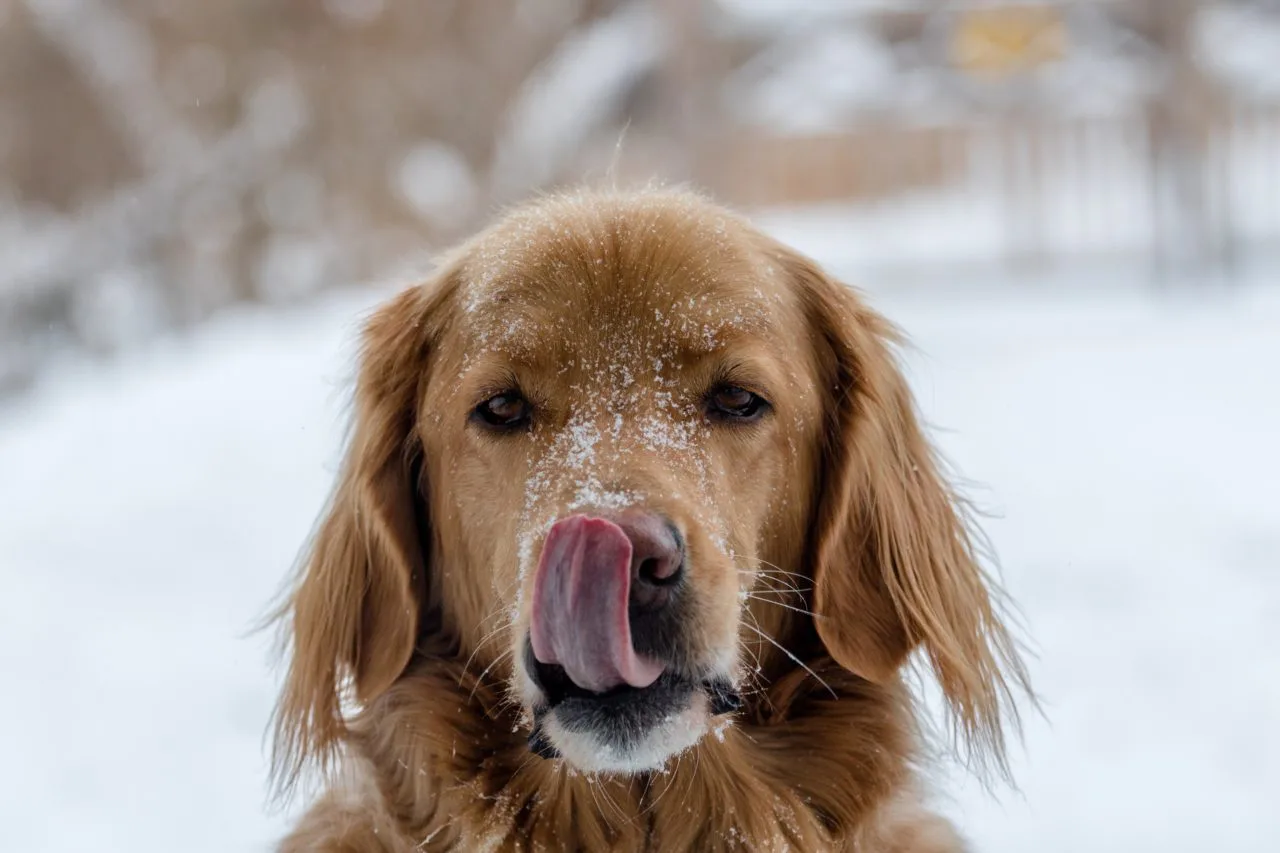Doggy, it’s cold outside! As you bundle up in your hat, coat and gloves, don’t forget to make arrangements for the health and comfort of your pets (including your dog) at the same time. When the cold winter weather strikes, don’t forget your pet’s comfort and safety; because as man’s best friend, our dogs count on us to keep them sheltered from winter dangers, no matter how low the mercury drops.
Pet Mantra to Live By
One good rule of thumb to keep in mind is if it’s too cold outside for you to be there for any length of time, then it’s also probably too cold for your furry friend as well. This is why it’s a good idea for you to keep your pets inside for the majority of time whenever the mercury dips. Even dogs that normally stay outdoors (such as hunting dogs or guard dogs) should be brought inside when the temperatures drop to extremes. Dogs should never be left outside for long periods of time in the cold, especially if they lack access to warmth.
Cold-Weather Misconceptions, Debunked
One common misconception is that pets like cats and dogs are better suited to the cold weather simply because they have fur. This can lead you to believe that they are more resistant to the effects of the dropping temperatures than people. Even though pets have fur (which seems like it should keep them warm) this thought process is really not entirely accurate.
Just like people, your cats, dogs and other pets have different tolerances for the cold on an individual level. A dog with a thick fur coat (like a Saint Bernard) might seem like they won’t be cold romping in the snow, but even these dogs can be reduced to a shivering and miserable heap of fur if the temperature is especially low.
It’s also important to remember that even dogs with long and thick fur coats can be at risk for cold-weather conditions, including hypothermia, frostbite and even death, when they are exposed to sub-zero temperatures. While it’s not a hard and fast rule, dogs that are very old, very young and dogs who are battling health problems are more likely to have problems regulating their own temperatures as the thermometer drops.
Always Offer Your Pets Shelter
Even if your dog and/or cat is only going to be outside for a short amount of time, be sure that they have access to shelter. This may be allowing them to come in as soon as they’re ready or setting up a heated garage or dog house. You never know when your dog might get out accidentally and need to take cover to get out of the worst of the elements.
Another common scenario is when a child lets the dog outside, but then forgets to bring it back inside in a timely manner. Access to shelter can mean the difference between a shivering, wet dog and a pup who’s only pouting because they’ve been outside too long.
For All Other Pets, Including Livestock
Pets and livestock (horses, cows, pigs, chickens, etc.) and any other outdoor-dwelling animal should have access to shelter, plenty of hay to sleep in, and preferably, access to a heated barn. Most animals should also be fed extra food during winter months.
Also, don’t forget that water freezes easily in the winter. Whether it’s your dog or your horse, checking and refilling water as it freezes will keep them hydrated and well. Heated bowls are an excellent option for a pup or livestock who spends time outdoors.
Winterize Your Dog(s)
A coat for your furry friend can be more than just a cute or stylish fashion statement, especially if your dog is small or short-haired. Choose the right one and the jacket will also serve an additional purpose by keeping your pet warm and toasty. Look for jackets with down filling and match your dog’s size accurately for best results.
To properly fit your dog in a jacket, check to be certain that it doesn’t bunch up or rub them as your canine pal runs around in the snow. It should fit snugly around the neck and waist without restricting movement.
Check Paws Carefully After Outdoor Play
The pads on your best friend’s paws might be well-suited to outdoor life and navigating tough terrain, but this doesn’t mean that they won’t be affected by the cold weather. Road chemicals like salt can cause harmful cuts and chemical burns to his pads. Make sure that you wipe off your dog’s paws with a cloth dampened with warm water every time they come back inside. Whenever possible, give your dog an added layer of paw protection before you head out.
Salt and other chemicals aren’t the only things that can be harmful to your pets’ feet. You should also inspect your dog’s paws for ice and snow every time she comes back inside. Look for ice that’s lodged in between their toes, cracked pads or any signs of frostbite. Limping is a major sign of issues, and should be addressed with first aid, or if needed, a vet visit.
Having repeated problems? Pick up a pair of dog boots for him to wear outside. These will provide a measure of protection against the ice and snow. One caution: some dogs find them a little bit funny at first, so it may take your pup some time to acclimatize.
Store Harmful Winter Items & Products
Antifreeze is an important element when it comes to maintaining your car for the winter time. Unfortunately, it can also be a source of temptation for your dog because of its sweet smell. If ingested, it can cause organ failure, convulsions, and even death – and worse yet, it’s very difficult to treat.
Be sure to clean up any spills when you’re taking care of winter car maintenance, and store products like antifreeze up high or in a locked cupboard. If they spill, clean them up (clumping kitty litter works well). Supervise your pets while they are outdoors so they don’t stumble upon forgotten substances that could be harmful to them.
Be Proactive About Proper Pet Winter Care
Don’t wait until a winter storm warning is issued for your area to take steps to make sure your pets are kept safe during the winter. Purchase coats or sweaters for your dogs before they need them so you have them on hand. Take your pet to the veterinarian for their annual check up if they haven’t already been this year. This will provide you with any special information you need to know that could affect how they handle the winter weather.
During your yearly vet visit, make sure you know the proper procedure to get your pet emergency veterinarian care should something happen in spite of your efforts.
Stray Cats & Dogs
Last, but certainly not least, is a tip that often applies to cats: be sure to bang on the hood of your car before you start it in cold weather. Outdoor dogs, cats (and sometimes squirrels) may hide in the undercarriage seeking warmth; this can be disastrous when you turn the engine on.

